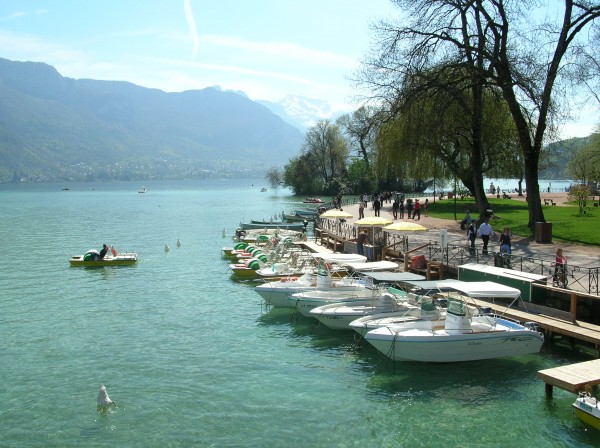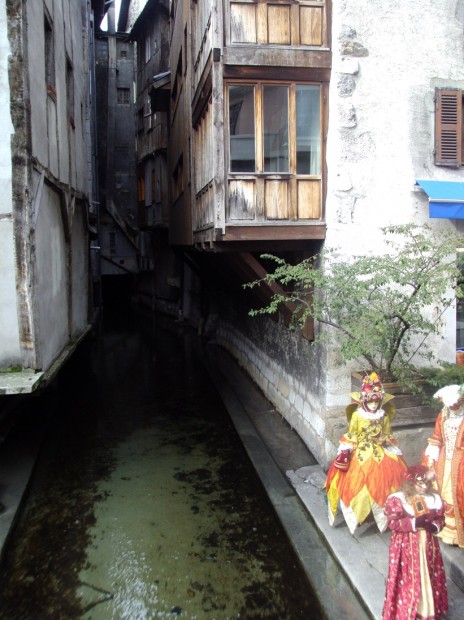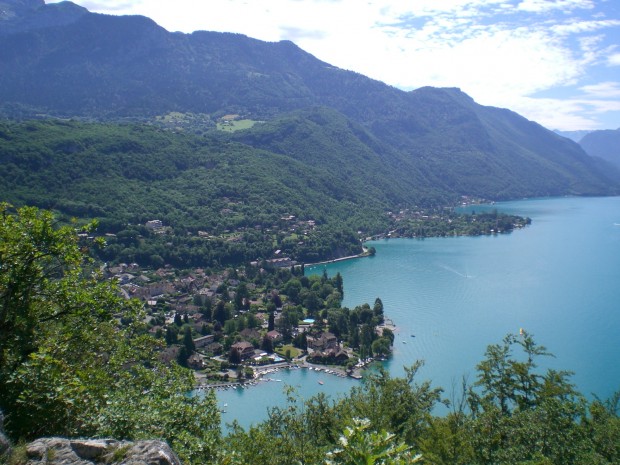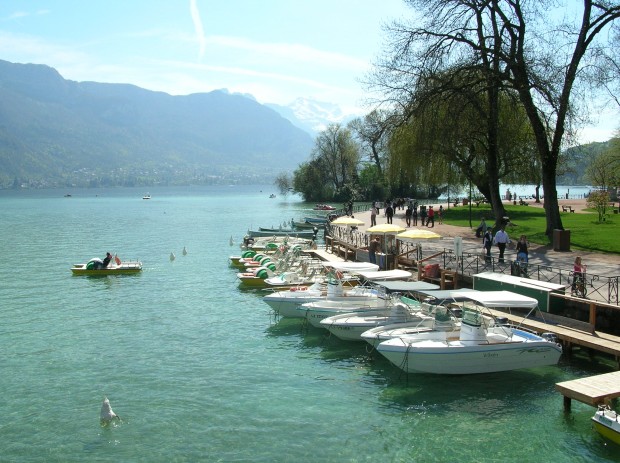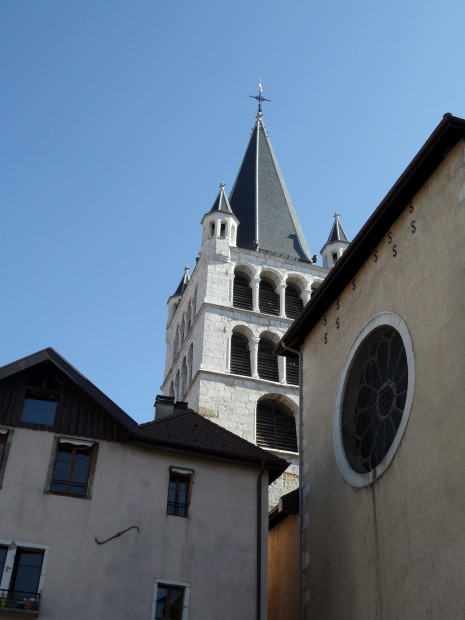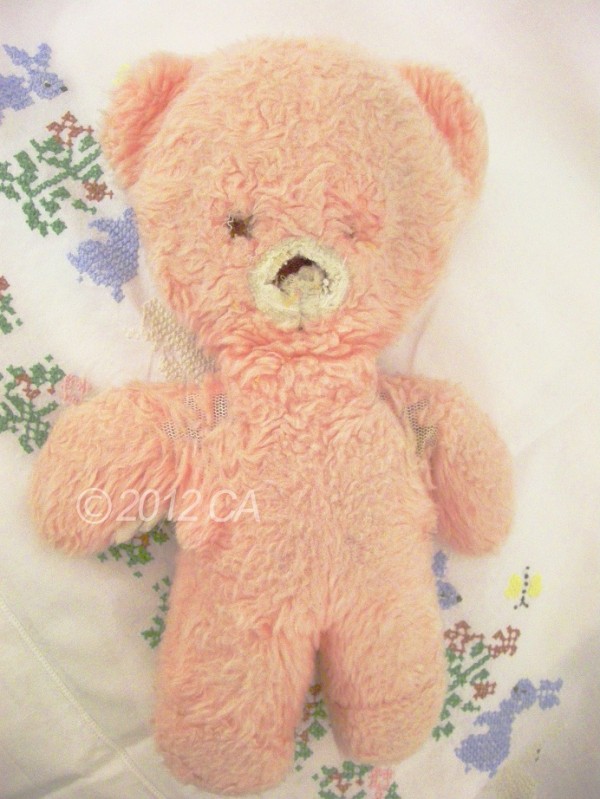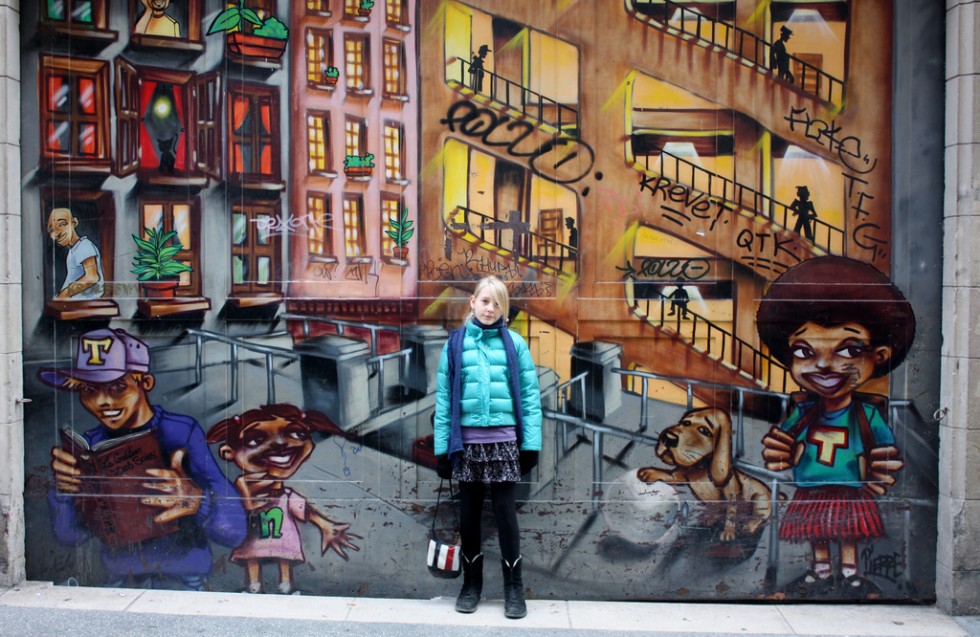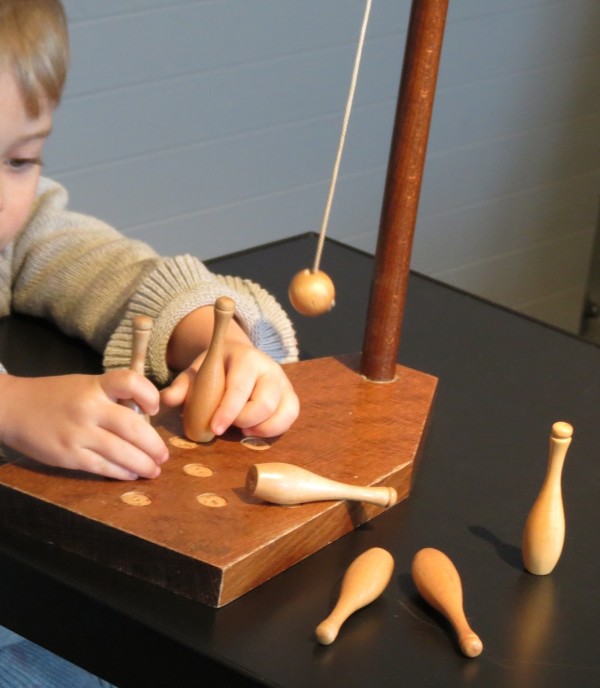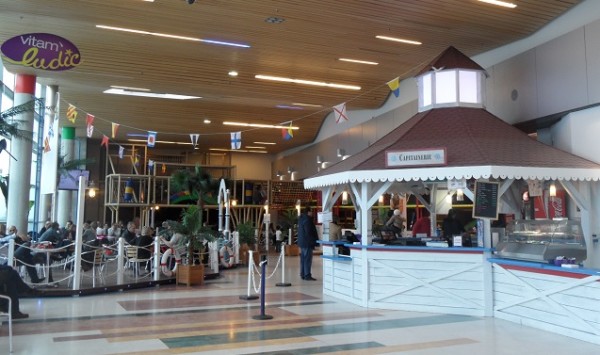Have you ever dreamt of moving to Annecy, one of France’s most beautiful cities known as the Venice of the Alps for its canals and waterways?
If so, read our interview with local resident Brigitte, a French mother-of-three who’s also lived in England and the Philippines as an expat spouse. For those of you wishing to practice their language skills, we have left the original French text in, as well!
GFD: What brought you to Annecy ? Tell us about your family.
Brigitte: We left Northern France in 1997 when my husband was offered a post at a Nestlé factory near Annecy. I gave up my job… (I had studied hard to become a journalist and photographer). But I don’t regret moving!
Nous avons quitté le Nord de la France en 1997, quand mon mari s’est vu proposer un poste dans une usine Nestlé près d’Annecy. J’ai dû démissionner de mon travail, j’ai eu un peu de mal à retrouver quelque chose d’intéressant (j’étais journaliste) mais je n’ai jamais regretté!
GFD: How do you get used to being an expat in new surroundings ? How long before you made friends and got to like your new life?
We wanted to do an expat experience with our children, so we left full of curiosity and hopes. Everyone is different, but I love the thrill of shopping in a supermarket where I don’t understand the language; eating in a restaurant not knowing what to expect and looking at people, especially when they are so different from us.
In England we were really lucky. As soon as we arrived, a lovely neighbour kindly invited us over. She introduced us to the other neighbours (we lived in a tiny village), and from then on our social life went on like a ‘snowball effect’, we met many many English people.
And of course, I made friends with other mums at my children’s school (a small Church of England school). People were particularly welcoming even though it took me years of English lessons to improve my English. I have taken lessons for three years.
We didn’t set out to meet other French people nor did we feel the need to join French groups. Still, we met a French family while visiting a castle and became really good friends. They now live in Ireland. We shared the same love for England, the same passion for its history and old stones.
D’abord, nous étions volontaires pour partir en expatriation, donc nous partions plein de curiosité et d’envies. Cela dépend des personnes, mais moi j’adore aller dans un supermarché où je ne comprends pas les gens, j’adore manger dans un restaurant sans savoir trop ce qu’on va manger, j’adore regarder les gens, surtout quand ils sont différents.
En Angleterre, nous avons eu beaucoup de chance, parce que nous avions une voisine très gentille, qui nous a tout de suite invités chez elle, puis nous a présenté d’autres voisins (nous habitions un tout petit village) et de là, par “boule de neige”, nous avons rencontré des tas d’Anglais.
Et bien, sûr, j’ai sympathisé avec des mamans dans notre petite école (Church of England) où les gens se sont montrés particulièrement accueillants, bien que mon anglais, au départ, était vraiment laborieux. J’ai d’ailleurs pris des cours pendant 3 ans.
Nous n’avons pas cherché à rencontrer de Français, nous ne nous sommes pas renseignés sur les associations, nous n’en sentions pas le besoin. Nous avons quand même rencontré une famille française tout à fait par hasard, en visitant un château, et nous sommes devenus très amis (nous le sommes toujours aujourd’hui et ils vivent en Irlande). Nous partagions le même amour de l’Angleterre, la même passion pour son histoire, ses vieilles pierres, ce qui nous a rapprochés.
GFD: What about your expat experience in the Philippines?
In the Philippines, it was quite the opposite. I landed in an apart-hotel with only 2 telephone numbers: that of my husband’s boss’ wife (a Mexican lady, she spoke a bit of French and we had already met once), and the wife of a French colleague. I called them both very soon, started meeting the Mexican lady for French conversations and we became friends.
The French lady put me in touch with ‘Manille Accueil’, the local French Association, where I made friends for life: 5 years later, about 10 of us (women only!) spend a week together each summer.
I spent two wonderful years in Manila thanks to these friends. Some had lived in countries with larger populations of French people and said that it was much easier to make friends in smaller French communities like the one in Manila (where there are less than 2,000 French people) because the community is very strongly bonded.
Aux Philippines, c’est tout le contraire; j’ai débarqué dans un appart-hôtel avec deux numéros de téléphone : celui de la femme de chef de mon mari, (une Mexicaine qui parlait un peu français et que j’avais vu une fois), et la femme d’un de ses collègues français. Je les ai appelées presque le premier jour. La Mexicaine est devenue une amie, je lui donnais d’ailleurs des cours de conversation française chaque semaine.
La Française m’a renvoyée vers l’association des Français, Manille Accueil, où je me suis fait immédiatement des amies. Des amies pour la vie, puisque cinq ans après notre retour en France, nous nous voyons dès que possible et passons rituellement une semaine entre filles l’été (nous sommes une dizaine).
J’ai passé deux années merveilleuses à Manille grâce à ces amies. Les filles qui avaient vécu dans des pays où il y a beaucoup de Français m’ont expliqué qu’il valait mieux arriver dans une communauté très petite comme Manille (même pas 2000 Français), car la communauté y est très soudée.
GFD: How important is community life for an expat family?
We helped each other every day, and as we’re far from our own families we create another one. ‘Manille Accueil’ (now called ‘Manille Bienvenue’) is a simple association, there’s no snobism, with a warm and cheerful atmosphere. There were loads of activities, sports and outings. I very quickly lent a hand to the Bureau of the Association to deal with the mail and to welcome newcomers.
On a énormément d’entraide dans la vie quotidienne. Et comme on est loin de sa famille, on s’en crée une autre. En plus, Manille Accueil (qui est devenu Manille Bienvenue depuis) est une association simple, sans chichis, ce qui contribue à une ambiance conviviale. Il y avait de nombreuses activités, sports et sorties proposées. Je suis tout de suite entrée au Bureau de l’Association et je m’occupais du mail…. et de l’accueil des nouveaux.
GFD: Do children cope well and what sort of things help them with the changes ?
Young children are very adaptable. What is most important is for the parents to feel good in the new country, because that happiness will influence the kids. I didn’t want to work while on our expat assignment so that I could be there for my children. Especially in England where they arrived not knowing a word of English.
They needed my support. It is important to do lots of activities, outings and trips, things that they wouldn’t do in their native country, so they understand the privilege of living abroad. For example riding elephants, snorkeling, swimming with whales, skiing, a dog sledging trip, sleeping in an igloo or, for instance, travelling to Central Europe if you’re an expat in Switzerland.
Les enfants, quand ils sont petits, s’adaptent à tout. Mais je pense que le plus important, c’est que les parents se sentent bien dans leur nouveau pays, et cela déteindra sur les enfants. Je n’ai pas voulu travailler quand j’étais en expatriation, afin d’être vraiment disponible pour eux, surtout en Angleterre où ils ne parlaient pas un mot d’anglais au départ.
Ils ont eu besoin de mon soutien. C’est important de faire beaucoup d’activités, sorties et voyages fun avec eux, des choses qu’ils ne pourraient pas faire dans leur pays d’origine, pour qu’ils comprennent tout seul tous les avantages de vivre ailleurs. Par exemple se promener sur un éléphant, faire du snorkeling, nager avec des baleines pour nous; skier, faire une promenade à chiens de traîneau, dormir dans un igloo, voyager dans l’Europe centrale pour les expatriés en Suisse.
GFD: Did you get to know the local people well, or is it easier to make friends with foreigners (like in London) ?
I think that you can always meet local people in Europe. In the Philippines it was impossible to meet native people. We lived in secure villages, surrounded by Philippino millionaires, and we had philippino personnel working in our home. So, between very rich and very poor people, we didn’t meet any ‘average philippino’, like us in France, with whom we could have shared common interests.
Je pense que vous pouvez sympathiser avec n’importe quel Européen. Pour les Philippines, ça a été impossible de rencontrer des gens du pays. Nous habitions dans des villages sécurisés, entourés de millionnaires philippins, et nous avions du personnel philippin.
Donc, entre les très riches et les très pauvres, nous n’avons pas rencontré de “Philippins moyens”, comme nous, avec qui nous aurions pu avoir des points communs.
GFD: How would you compare your lifestyle in Annecy to that of Northern France, England and the Philippines? Where did you feel happier?
Life in Annecy is very sporty. There are mainly 2 things on people’s mind: the mountain and the lake! They spend all their week-ends skiing in winter and hiking or swimming in summer. The Savoy people tend to keep to themselves, and live closely within their families. They are not very interested in ‘foreigners’ – by that they differ from French people in other parts of France.
For example in Northern France and in England there is a much greater sense of conviviality, people love going out, catching up with friends at the pub or in a coffee shop. Over there it is not all about nature and sports, and people spend more time with friends.
But here it’s slightly different. We arrived in Annecy 15 years ago the first time, and all our friends are ‘foreigners’. Like us, they come from Lyon, Bourg en Bresse, Bezier, Grenoble.
But I am still happy where I live (I haven’t experienced Siberia yet…).
A Annecy, la vie est très sportive. Les gens ne pensent qu’à deux choses : la montagne et le lac!! Ils sont donc plutôt individualistes, et passent leurs week-end d’hiver à skier et ceux d’été à randonner ou se baigner. Les Savoyards restent entre eux, ils vivent beaucoup en famille. Ils ne s’intéressent pas beaucoup aux “étranger” – je veux dire par là aux gens des autres régions.
C’est tout le contraire des gens du Nord et des Anglais qui ont le même sens de la convivialité, qui aiment sortir, voir des amis au pub ou au café.
Dans le Nord ou en Angleterre, il y a moins de possibilité de profiter de la nature, de faire du sport, alors on occupe ses loisirs avec des amis.
Ce n’est pas le cas ici. Nous sommes à Annecy depuis 15 ans et tous nos amis sont des “étrangers” comme nous, ils viennent de Lyon, Bourg en Bresse, Béziers, Grenoble….
Je suis toujours heureuse là où je vis (je n’ai pas encore testé la Sibérie….)
GFD: Could you tell us how to spend a really good day in Annecy? Where would you spend your time when you’re in town?
In Annecy, it’s good to hire a bike and cycle around the bike path along the lake, Eastwards (direction Veyrier du Lac), you can cycle really far.
You can also do it on foot. Walking around the old town and climbing up the castle (the visit of the castle itself isn’t really worth it as the interior isn’t furnished). In the old town there are many touristic restaurants, they are all fine, offering decent fondues, raclettes and tartiflettes, the local specialities.
A Annecy, il faut louer un vélo et partir sur la piste cyclable qui longe le lac. Vers l’est (Direction Veyrier du Lac), on peut aller très loin.
On peut aussi le faire à pied. Il faut se promener dans la vieille ville et monter au château (la visite n’est pas formidable car il n’y a pas de meubles). Dans la vieille ville, on trouve de nombreux restaurants ” à touristes” qui proposent d’honnêtes fondues, raclettes et tartiflettes et ils se valent tous.
GFD: What are your favourite restaurants in town?
In the ‘chalet’ style, I particularly like Chez Mamie Lise on rue Grenette and Le Bistrot de Bonlieu on rue Jean Jaures. Then there’s the classic Brasserie des Europeens on Place de l’hotel de ville. For a chic venue with a view on the hills, try Les Tresoms on Bvd de la Corniche.
And finally, especially for English people, head down to Le Captain Pub (Pont Morens) and on Sundays, have brunch in traditional style at the superb Hotel Imperial Palace, perfectly bordering the lake and right in the town centre.
I have to admit I’ve never been to any of the museums in Annecy! You can also have a boat ride on the lake and even dine on the Libellule floating restaurant. It is very romantic.
Dans le style chalet, j’ai un faible pour “Chez Mamie Lise” (rue Grenette) et “Le Bistrot de Bonlieu” (rue Jean Jaures). Ensuite, la “Brasserie des Européens” (Place de l’hôtel de ville) est un classique. Plus chic, vue extra, sur les hauteurs, on peut s’offrir “Les Trésoms” (Bvd de la Corniche).
Enfin, pour les Anglais, le “Captain Pub” (Pont Morens). La grande tradition du dimanche midi c’est d’aller bruncher dans le superbe hôtel “L’Impérial”, au bord du lac en plein centre. Je n’ai jamais visité aucun musée à Annecy!! On peut aussi se promener sur le lac en bateau et même dîner sur le “Libellule”. C’est très romantique.
GFD: What about the area around Annecy, is there a really interesting place you would recommend ?
Do not miss Talloires, a lovely little town on Lake Annecy. You can also hike up the mountains, from where you can enjoy fabulous view of the lake (see my photos in this post!). From here you can get to the ski resort of Le Grand Bornand in about 45 minutes, or La Clusaz, good in any season.
Another lake to visit is the lac du Bourget near Aix les Bains. The natural scenery is a bit wilder there.
Au bord du Lac d’Annecy, ne pas rater la ravissante petite ville de Talloires. On peut d’ailleurs faire une promenade pour grimper sur les hauteurs et ainsi avoir une vue fabuleuse du lac (Cf photos). Ensuite, en 45 minutes, on arrive aux stations de sport d’hiver du Grand Bornand ou de La Clusaz, à voir en toutes saisons.
Il faut voir aussi l’autre lac, celui du Bourget, qui borde Aix les Bains. Il est plus sauvage.
GFD: Last but not least, what’s your advice for expats moving to Geneva ?
I rarely go to Geneva, but I have Swiss friends that I met in Manila. They are very warm after the initial approach, which may seem “cold”. My advice to make friends with local Swiss people is not to rush them, and let them come to you when they feel ready. They like order, tranquility and rules of good behaviour, and they strongly dislike intrusion and impoliteness.
Je vais rarement à Genève, mais j’ai des amis suisses (rencontrés à Manille) qui sont très chaleureux malgré un premier contact un peu froid. Il ne faut cependant pas les brusquer et les laisser venir à vous à leur rythme. Ils aiment l’ordre et la tranquillité, ils sont extrêmement respectueux des règlements et des règles de bonne conduite et ne supportent pas les comportements sans-gène.
Photos credit and copyright Brigitte S. 2012
Photos of Annecy Carnival masks and tower, credit & copyright Geneva Family Diaries 2012

